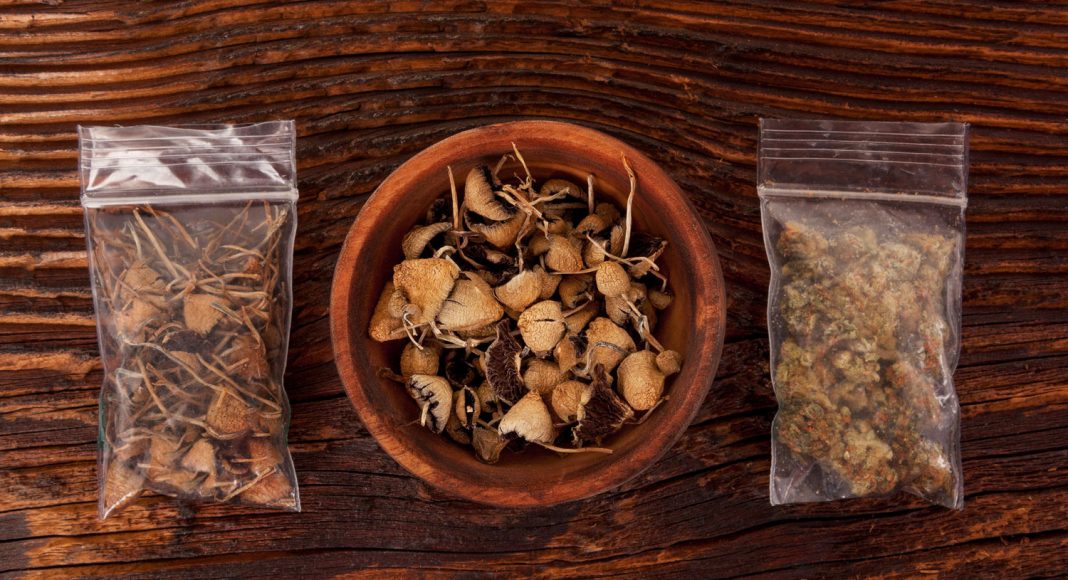Enough of us have at least heard of microdosing by now. And if you pressed hard enough, I’m sure most of us could sketch a rough outline of what microdsoing is and looks like. Something like, “A Silicon Valley trend that involves repeatedly ingesting small samples of psychedelic substances—though not enough to actually trip—to invoke cognitive and physical boosts.”
As a new paper published in the Journal of Psychopharmacology details, most of what we know around microdosing psychedelics stems from anecdotal evidence. A group of international researchers aimed to systematize and analyze some foundational questions around the phenomenon: What is the scientific definition of micrdosing? How does it work? Does it even work? Could it be harming or helping our bodies? Is it illegal? Answering these questions could provide a necessary framework to tackle more scientifically rigorous analysis around microdosing.
RELATED: How Melding Marijuana Microdosing And Kundalini Yoga Can Heal The Brain
“Despite so much interest in the subject, we still don’t have any agreed scientific consensus on what microdosing is — like what constitutes a ‘micro’ dose, how often someone would take it, and even if there may be potential health effects” said David Nutt, senior author of the paper and the Edmond J. Safra Chair in Neuropsychopharmacology at Imperial College London.
While the general public might be attracted to experimenting with microdosing after reading online testimonials and online articles, researchers stressed that microdosing isn’t so easy breezy. The team highlighted the possibility of cardiovascular risk caused by microdosing, as well as other studies that found negative persistent behavioral changes caused by taking LSD every other day over the course of several months.
But researchers also analyzed if the claims made by microdosing evangelists is plausible from a biological perspective. They referenced early-stage research that demonstrated how psilocybin can target receptors in the brain that binds to serotonin. Taken at small doses, it could be possible that binding with serotonin — which is a chemical messenger that typically coincides with sensations of joy, learning, and memory — would produce the so-called therapeutic effects reported by those who experienced it.
RELATED: 4 CBD Questions We Need Researchers To Answer ASAP
In addition, there is evidence that low doses of psychedelics could have a profound anti-inflammatory effect on peripheral tissues. Previous animal studies have shown how such properties can result in the reduction of allergic asthma and intestinal inflammation.
“It remains to be seen whether very low levels of psychedelics are also anti-inflammatory in humans, and if the anti-inflammatory activity also occurs in the brain, but if these findings do translate then levels typically used in microdosing regimes for some psychedelic compounds would be predicted to have significant and beneficial anti-inflammatory effects,” the authors wrote.
They also added that while LSD is considered one of the most powerful “mind-altering psychedelics,” it is among “the least potent anti-inflammatories tested.”


